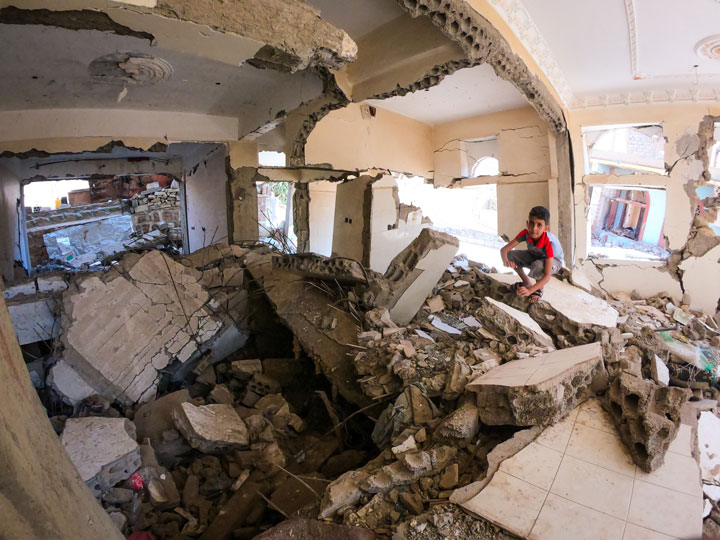Life a ‘waking nightmare’ for 12 million children in Yemen

“Yemen is teetering on the edge of complete collapse.
“Over 80 per cent of people require urgent humanitarian assistance and protection. Including 12 million children, whose lives are a waking nightmare.
“It is perhaps the most dangerous place on earth to be a child. One child dies every 10 minutes from a preventable disease. Two million are out of school. And thousands have been killed, maimed or recruited since 2015. Just last week, 11 were reportedly killed, including a one-month-old baby.
“The situation on the ground is a tangle of crises — any one of which would bring a country to its knees.
“Conflicts across 49 frontlines — up from 36 in just one year.
“An economy in tatters — families can no longer cope.
“Support systems and infrastructure — from hospitals and schools, to water and sanitation systems — on the brink of collapse.
“A COVID-19 pandemic sweeping across the country.
“Through all of this, our humanitarian teams are facing fighting, blockades and bureaucratic hurdles to reach the millions who need our help.
“And now, despite repeated warnings, the country is facing a nutrition crisis. 2.1 million children are acutely malnourished — and almost 358,000 severely malnourished. We believe famine-like conditions have already begun for some children.
“These are not just numbers on a page. These are millions of individual tragedies. Millions of blighted futures. And millions of parents making the gut-wrenching choice between food and medical care for their children.
“Last Friday, from an ICU bed in Hodeida, an eight-year-old girl named Zahra begged UNICEF and her medical team to let her go home. She explained that her father couldn’t afford both food and medical expenses. A choice no parent should have to make.
“As the world watches, an entire country and its people are being deprived of the basics of life.
“Our teams are doing all we can — including supporting the response to the nutrition crisis, urgently scaling-up related water and health responses, and providing education, counselling and cash transfers to families.
“But the needs are growing faster than we can respond. We need your help.
“We need renewed political action now — including global support for the UN peace process led by Martin Griffith. The only way out of this unfolding horror is through a political track.
“We need humanitarian access — across the board. Our teams are already operating under extremely challenging conditions — made worse by obstructions and interferences, and a shrinking humanitarian space, especially in the north. We need those who can influence parties to conflict to help us do our jobs.
“We need funding. We recognize that donor fatigue has set in. Multiple crises, economic hardships and COVID-19 are exhausting available funds.
But we must act urgently to avoid the impacts of a potential famine. UNICEF plans to reach over 289,000 severely malnourished children under five next year with treatment and continue our work to build up water, sanitation, hygiene and health systems to support this. We need your help to do this.
“And we need your help to prevent the complete collapse of all of the systems that Yemenis need now and over the long term. This should include support for our ongoing efforts to solarize water systems and health centres for the future. To help a generation of Yemeni children continue their education. And to rally the global community around a comprehensive support package — including foreign-exchange injections and new financing models to avoid a complete economic collapse.
“2020 will be remembered not only for COVID-19 — but as a year in which we failed the children of Yemen once again.
“We must not make the same mistake in 2021.”

